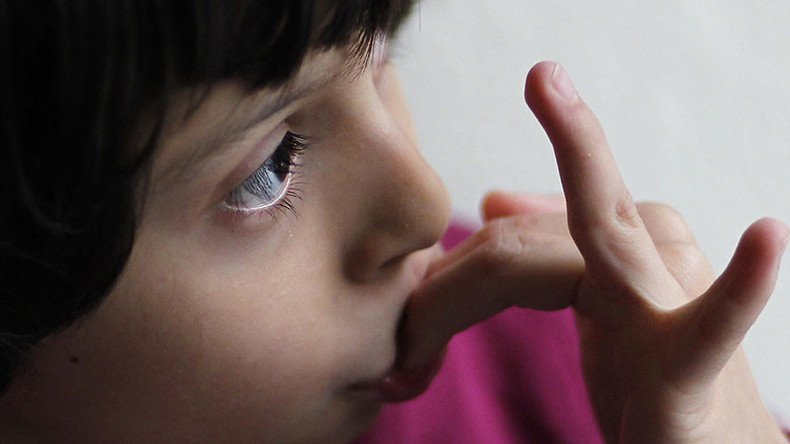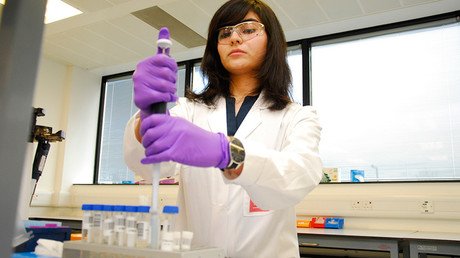Autism symptoms show improvement from donor viruses in fecal transplants – study

Children with autism may see their symptoms reduced after receiving fecal transplants, a method of introducing healthy microbes that rebalance the gut, a new study finds.
A team of scientists from Ohio State University, Northern Arizona University, and University of Arizona released on Monday the results from their study, “Microbiota transfer alters gut ecosystem and improves gastrointestinal and autism symptoms,” which claims that mental problems like autism are linked to bacteria and viruses that inhabit the gut.
In the small study, 18 children, aged seven to 16, who suffer from autism symptoms, saw positive changes that lasted for at least eight weeks after a fecal transplant.
The team claims that parents saw overall improvement in their children in 17 different autism-related symptoms, including social skills, irritability, hyperactivity and communication.
“Following treatment, we found a positive change in GI symptoms and neurological symptoms overall,” Ann Gregory, one of the study’s lead authors, said on the Ohio State University website.
After the treatment, the team claims that the average developmental age of children with autism increased by 1.4 years, and symptoms from the Childhood Autism Rating Scale decreased by 22 percent. The team also claims that additional treatment saw even more improvement, with symptoms from the Childhood Autism Rating Scale decreasing by 24 percent after eight weeks of treatment.
“Transplants are working for people with other gastrointestinal problems. And, with autism, gastrointestinal symptoms are often severe, so we thought this could be potentially valuable,” said Gregory.
Researchers used a method called microbiota transfer therapy, in which children with autism received a two-week course of antibiotics that wiped out most of the existing gut flora. Then, a doctor performed a fecal transplant from a healthy donor into the gastrointestinal tract of a patient.
Healthy feces contains roughly 1,000 different species of bacteria and viruses that act as probiotics and help stabilize the ecosystem of the gut. Previous studies have also shown a high correlation between GI problems and autism.
Dr. Paul Wang, the head of Medical Research at Autism Speaks says on his site, “Data from our Autism Treatment Network and other research groups have long shown that GI problems such as constipation, diarrhea, abdominal pain and esophagitis are very common among children with autism.”
Gregory claims that after patients underwent the transplant, the diversity of viruses in their gut became indistinguishable from their healthy peers.
“Those donor viruses seemed to help,” she said. “Doctors know it works, just not how.”
The team concluded that children with autism may have fewer types of beneficial bacteria in their gut from the use of too many antibiotics in the first three years of life.
“We have to be mindful of the placebo effect and we have to take it with a grain of salt,” Matthew Sullivan, another one of the study’s lead authors, said on their site. “But it does give us hope.”














